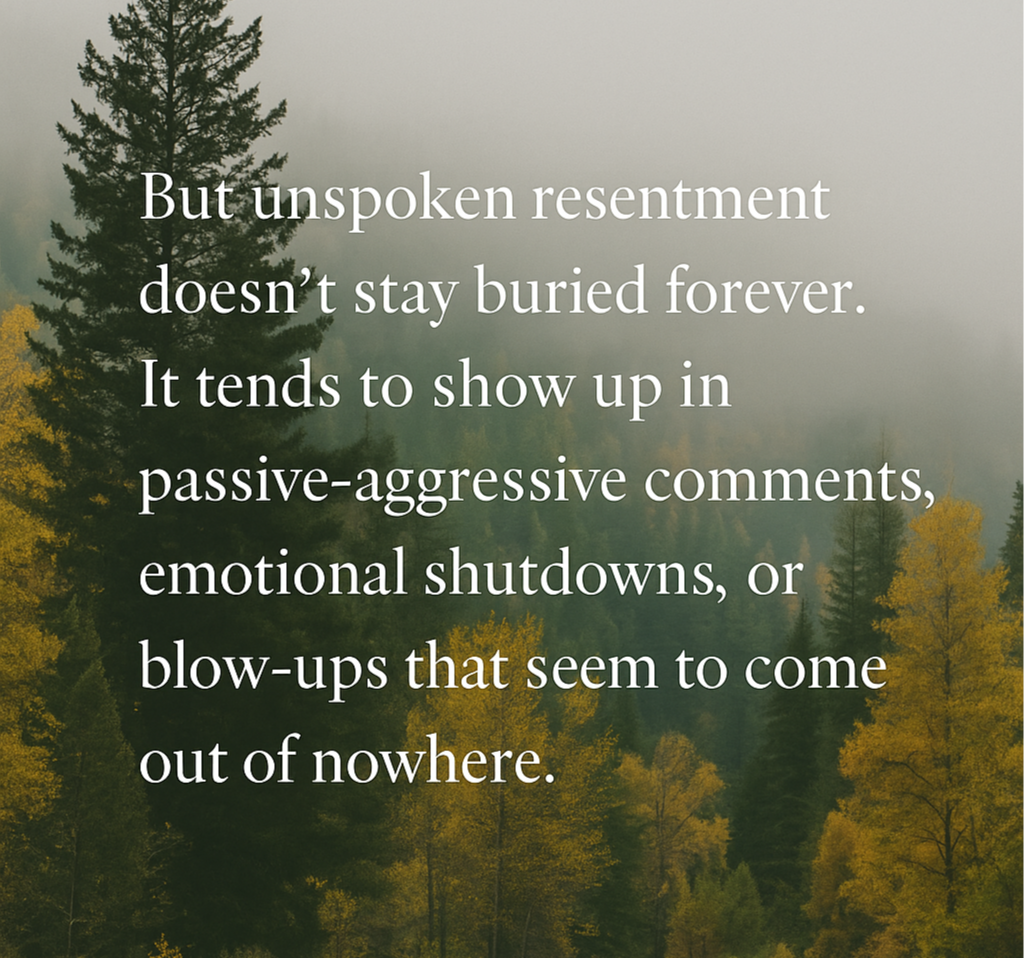Facing Conflict: Why Avoiding Hard Conversations Hurts More Than Helps
Conflict is something most of us instinctively want to avoid. (Not all of us… ;) )Whether it's tension with a partner, an uncomfortable dynamic at work, or long-standing family issues, the idea of a “difficult conversation” can easily stir up anxiety, a stomach ache and resistance. But while avoidance might offer temporary relief, it often deepens disconnection and fuels misunderstanding in the long run. As a therapist, avoidance patterns in relationships are like watching a trainwreck.
Why We Avoid Conflict
Avoiding conflict is a learned coping strategy. Did you grow up in a home where family members just walked away or constantly left conversations to ‘cool down,’ only to not revisit the content? For many people who are not conflict avoidant, it stems from growing up in environments where emotions were suppressed, confrontation was dangerous, or vulnerability was met with judgment. Over time, we equate keeping the peace with being safe—even when silence comes at the cost of authenticity or emotional well-being.
But unspoken resentment doesn’t stay buried forever. It tends to show up in passive-aggressive comments, emotional shutdowns, or blow-ups that seem to come out of nowhere.
By avoiding hard conversations, we may unintentionally create the very conflict we were hoping to escape.
The Cost of Avoidance
When we sidestep uncomfortable truths, we prevent our relationships from deepening. Trust relies on honest, compassionate communication. Confronting conflict doesn’t mean starting a fight—it means showing up with curiosity and courage. It means saying, “This matters to me,” even when it’s hard. Especially when it’s hard!
People often fear that speaking up will push others away. But when handled with care, vulnerable conversations tend to create more connection, not less. Naming what's real gives others the chance to meet us there—and to grow with us.
Starting the Conversation
Not sure how to begin? Here are a few tips:
Use “I” statements to express your feelings and needs without projecting blame
Focus on how the situation impacts you rather than diagnosing the other person
Be open to feedback and growth, even if it's uncomfortable
Take breaks when needed, but come back to the conversation with intention
If it’s too big to do alone, consider support from a therapist or neutral third party
Difficult conversations are an act of care. They build resilience, emotional maturity, strengthen relationships, and free you from the weight of unspoken tension. You don’t have to do it perfectly—you just have to begin.
Want to learn more about healthy relationship dynamics? Check out Toxic Relationships: How to Set Healthy Boundaries.

